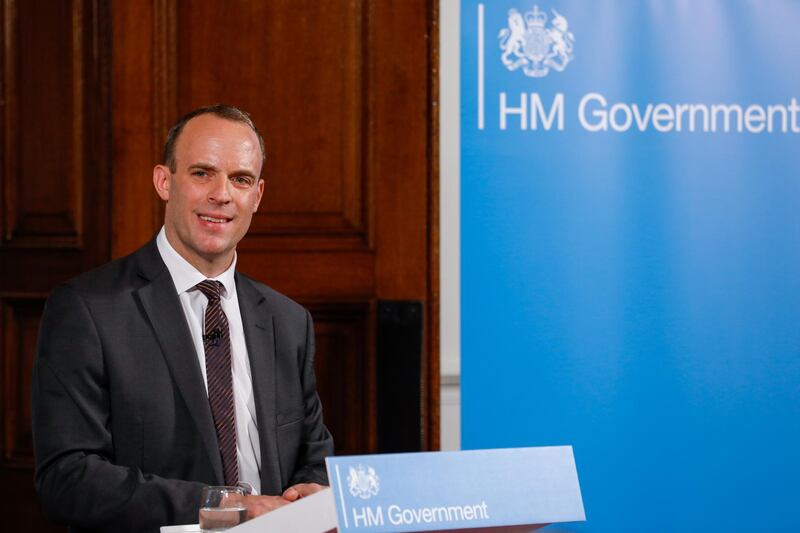Britain will take unilateral action and accept some of the European Union’s rules in the event of the country crashing out of the trading bloc without an agreement on its future relations, the government has said.
The government published the first in a series of documents on Thursday outlining plans for a no deal Brexit scenario and offering advice for businesses on how to prepare for such a prospect.
Speaking in Westminster following the documents’ publication, Brexit secretary Dominic Raab said he was “confident that a good deal is in our sights” but added that the government must prepare for “every eventuality”.
Britain is due to exit the EU on March 29, 2019 but both sides have yet to agree on what their future relationship after this date will look like, including on matters such as trade, immigration and security cooperation.
In Thursday’s advisory documents, the government said it would accept some EU regulations in the event of no deal, such as accepting batch testing of medicines carried out in EU countries.
Mr Raab said there would be “short term disruption” but sought to reassure the public that Britain would not run out of staples such as sandwiches.
"Let me assure you that, contrary to one of the wilder claims, you will still be able to enjoy a BLT [bacon, lettuce, tomato] after Brexit,” he said.
The Brexit secretary also rubbished claims that the army would have to be deployed to maintain food supplies.
He added that it was in the EU’s interests as Britain’s largest food market to make the process of importing as easy as possible.
However, there were warnings that Britons living in EU countries may not be able to access their British bank accounts to receive pensions and salaries, while making card payments in the EU would be costlier.
Britain’s main opposition party Labour criticised Mr Raab’s speech as being thin on detail and substance.
“A no deal Brexit has never been viable and would represent a complete failure of the government's negotiating strategy," said shadow Brexit secretary Keir Starmer.
A spokesman for the European Commission said that they were “working constructively to reach a deal”.
“It is also clear that the withdrawal of the UK is going to lead to disruptions regardless, with a deal or without a deal. And that's why everybody, in particular economic operators, needs to be prepared," the spokesman added.
_______________
Read more:
EU expects delay in Brexit deal beyond October target
Britain's health service could run out of drugs post-Brexit, NHS group warns
_______________
Meanwhile on Thursday official data revealed that net migration of EU citizens into Britain had fallen to its lowest level since 2012.
Figures published by the Office for National Statistics showed that 87,000 more EU citizens moved to Britain in the year to March 2018, down from 123,000 the previous year. However, overall net migration rose to 271,000 due to a record number of non-EU nationals entering the country.
The desire to restrict immigration was seen as the main reason many Britons voted to leave the EU in 2016.
The British government has said it wishes to bring net migration down to the tens of thousands.







